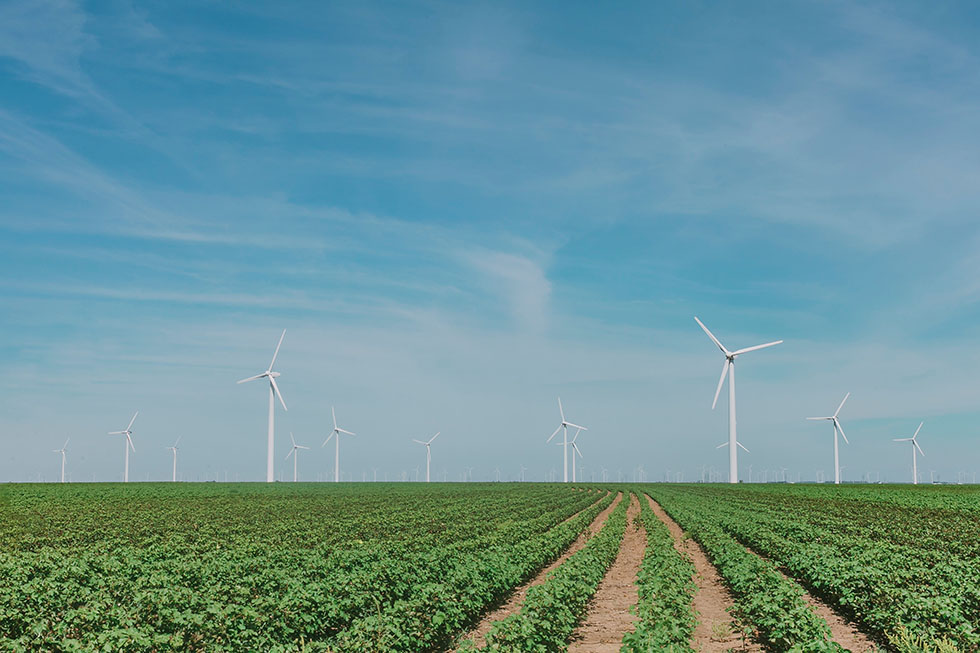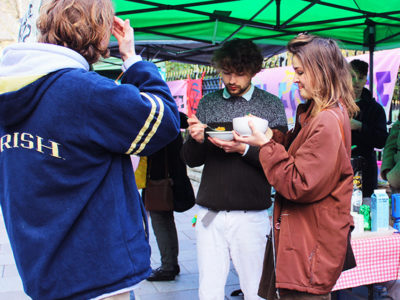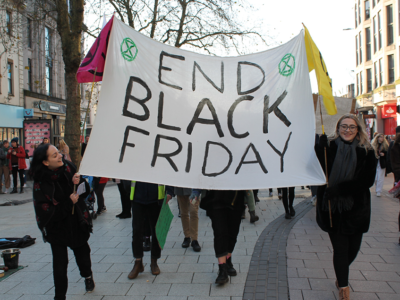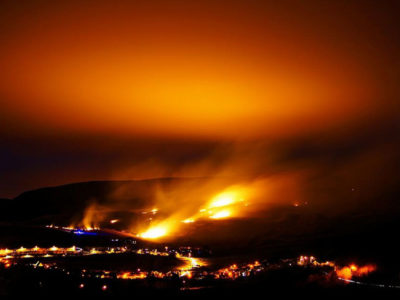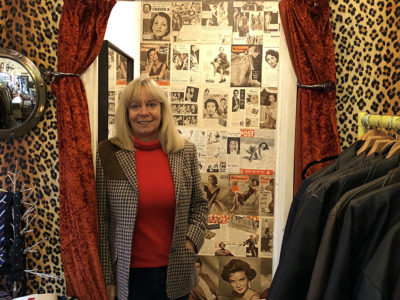Q&A with Dr Sanderson Bellamy
Dr Sanderson Bellamy is involved in a project called the Sustainable Management of Natural Resource framework, funded by RSPB. This research looks at establishing principles and frameworks to ensure that biodiversity commitments and the sustainable management of natural resources in Wales are met. It aims to incorporate the conservation of biodiversity into the management of Welsh natural resources through legislative and ecological basis.
Q: What is your opinion on the climate crisis we are living in? Do you think we have a way out?
Dr Sanderson Bellamy:
I think it’s scary. We are pushing our Earth’s systems to their boundaries and we don’t know that anyone has pushed beyond those planetary boundaries. Do I think we have a way out? I don’t know. I think, though, that it absolutely is a climate emergency and people have to treat it as such. And only by treating it as such is there hope that we might be able to create some kind of change that would enable us to avoid a disastrous ecological consequence.
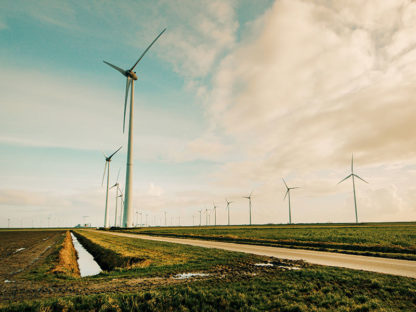
A view of a country road with windmills
Dr Sanderson Bellamy will explain why we need to adopt sustainable practices to produce food at the Food Systems Resilience & Transformations event
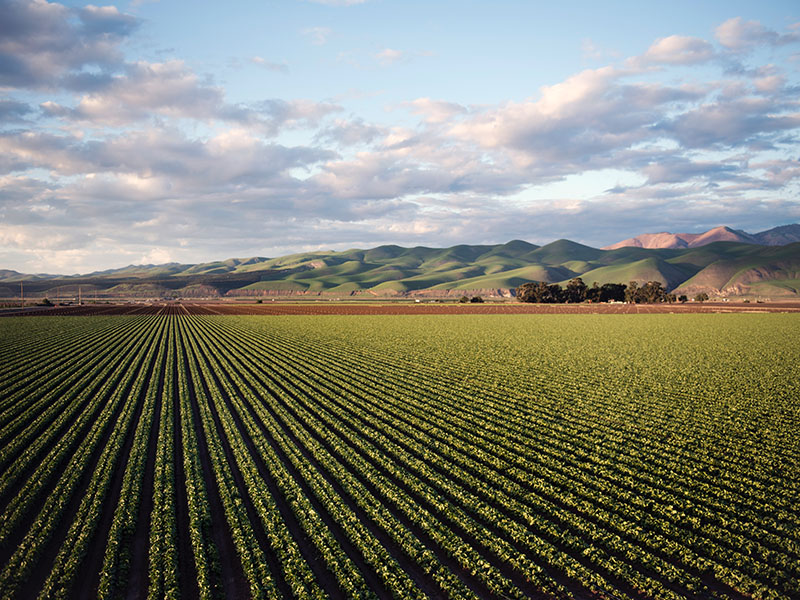
The Cardiff University Innovation Network is hosting an event on food production and consumption sustainability in November, where speaker Dr Sanderson Bellamy will argue that we need to stop exploiting ecological resources.
The free entry event will be held at Cardiff University’s Postgraduate Teaching Centre on 6 November at 17:00. It aims to raise awareness over the issues of sustainable food production by reaching new partners and the Welsh Government.

Dr Angelina Sanderson Bellamy is a Research Fellow at Cardiff University focusing on the sustainability of land use decisions and the impact they can have on the ecosystem services, specifically food provision.
She will be talking at the Food Systems Resilience & Transformations event as she believes that the way we are currently producing food is not sustainable.
She explains: “It won’t be possible to continue producing food in the way that we are because it destroys the environment and it also exploits people in other countries who aren’t earning enough to live or to afford food themselves. So, we must do something to change the system.”
Angelina knows claims the way we are exploiting our ecological resources will eventually destroy the ecosystems – and they are not infinite.
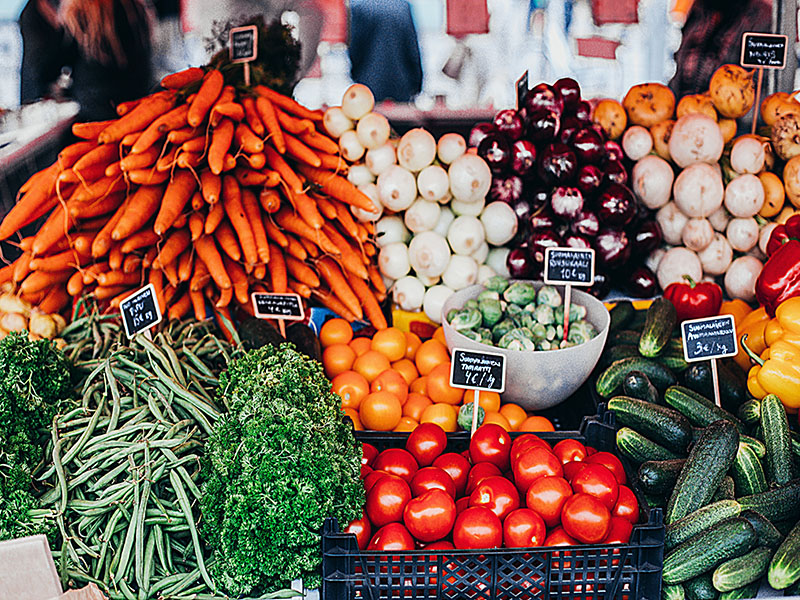
The recent focus on the climate crisis that has been brought to the public’s attention has pushed several organisations to take action and improve the way we treat our resources.
WRAP is a not for profit organisation (which has a Welsh branch, WRAP Cymru) whose mission is to accelerate the move to a sustainable economy. In 2018 WRAP launched the Food Waste Reduction Roadmap. This project aimed to have 50% of the UK’s largest food businesses to adhere to it by September 2019, obliging them to make public their individual food waste reports.
In a press release published earlier this autumn WRAP announced that they met their target, with 121 businesses adopting the framework.
Q&A with Dr Sanderson Bellamy
Dr Sanderson Bellamy is involved in a project called the Sustainable Management of Natural Resource framework, funded by RSPB. This research looks at establishing principles and frameworks to ensure that biodiversity commitments and the sustainable management of natural resources in Wales are met. It aims to incorporate the conservation of biodiversity into the management of Welsh natural resources through legislative and ecological basis.
Q: What is your opinion on the climate crisis we are living in? Do you think we have a way out?
Dr Sanderson Bellamy:
I think it’s scary. We are pushing our Earth’s systems to their boundaries and we don’t know that anyone has pushed beyond those planetary boundaries. Do I think we have a way out? I don’t know. I think, though, that it absolutely is a climate emergency and people have to treat it as such. And only by treating it as such is there hope that we might be able to create some kind of change that would enable us to avoid a disastrous ecological consequence.

A view of a country road with windmills

